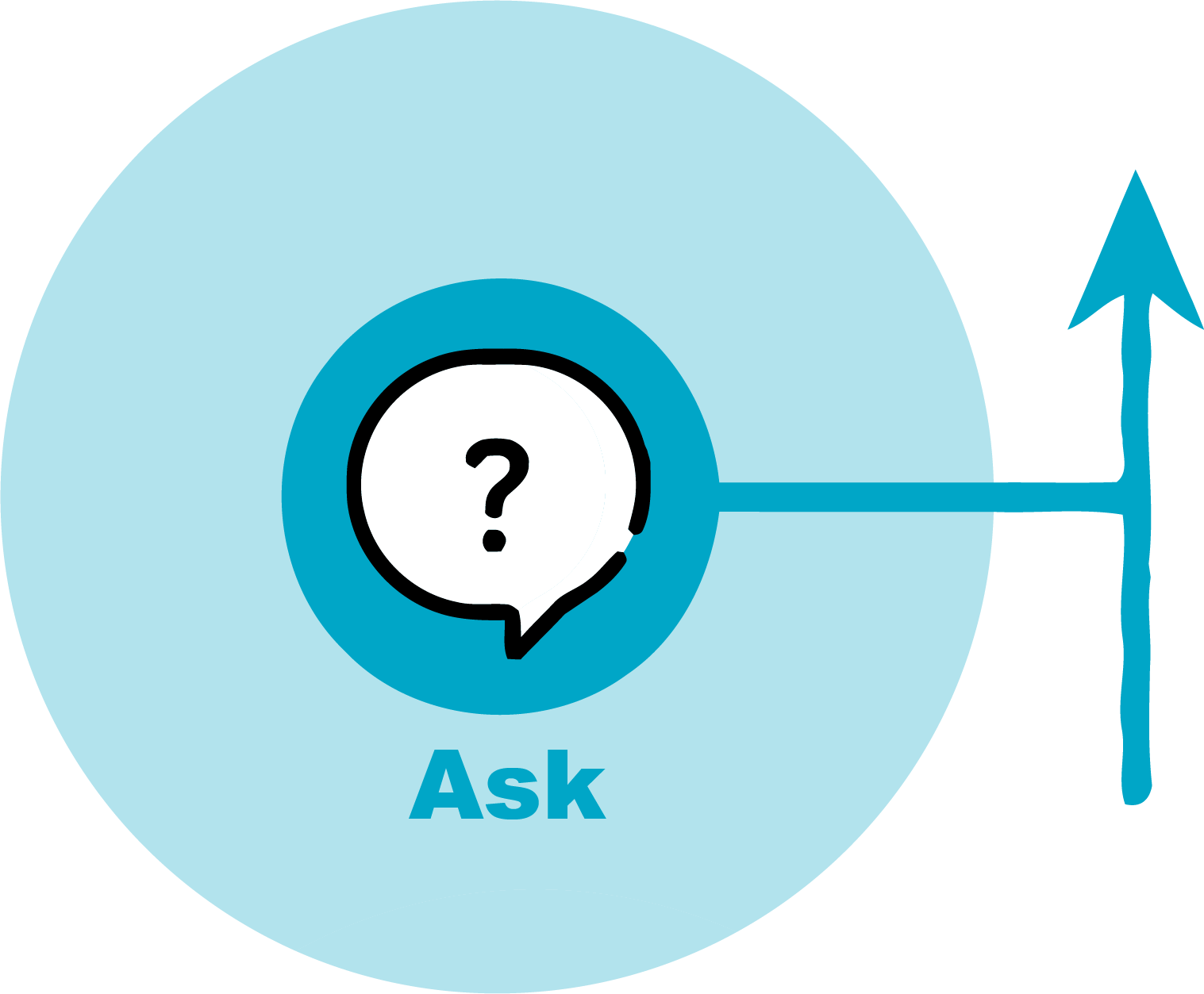Let's get this party started
This is the section of the toolkit where the “rubber meets the road” and we provide practical steps to help guide conversations with vaccine-hesitant people. But before we get into the nuts and bolts…

Yes, you should talk to a vaccine hesitant person!
We used to think it was better to let them find their own way so it doesn’t feel like we’re pushing. But they are looking for answers. Let’s make sure they get the facts!
Some things to remember
- Don’t let the perfect be the enemy of the good. Yes, you are going to make mistakes. You might be frustrated or worried you’ve over-stepped. It’s okay! As long as you are honest and kind, you’ll do fine.
- What you think of as “convincing” can seem like “coercion” to the other person. So tread lightly. Listen carefully, Assure people you are not trying to make their decisions for them but are trying to give them accurate information to help them make their own decisions.
- Encourage questions! Many people feel like they are not “allowed” to ask questions because “the science is settled.” And while the science is settled about vaccines, it doesn’t mean we can ask questions to better understand it.
- Behaviors change attitudes faster than attitudes change behaviors. People make unconscious decisions to trust us (or not) based on how we say something, more than what we say. So be a role model for trustworthy behavior. Listen – no seriously, really listen. You’re having a conversation, not giving a speech. Be informed and supportive. Be an ally.
- It’s a journey, not a destination. Not every vaccine-hesitant person is a refuser – in fact, most are not. They have questions that need answers and that can take time. Conversations about vaccines are not a “one and done.” It takes time, so be patient, have realistic expectations, and don’t push too hard.
- Training is available! Learn an evidence-based method of handling hesitancy in order to become the Trusted Vaccine Messenger to the people around you.
How to frame the conversation
When talking with a vaccine-hesitant person, here’s an evidence-based but simple step-by-step guide to help you:
- Set the stage. Create a safe space where a person feels comfortable being honest. This means:
- Be empathetic: Put yourself in the other person’s shoes. It helps to better understand where they are coming from.
- Avoid Conflict: You can politely disagree but don’t debate or start a fight.
- Be an active listener: If you’re thinking about what to say next, you’re not listening and could miss something important.
- Ask someone to name their single biggest concern or fear. It helps to narrow down what is really bothering someone.
- Validate, don’t berate. Validate by acknowledging someone’s fears and concerns. Don’t judge. Be respectful. Encourage questions!
- Ask open-ended questions. If you ask a yes/no question, you’ll get yes or no as an answer. But if you ask open-ended questions, you have an opportunity to listen and learn more.
- Ask permission before giving information. A person needs to feel in control so offer information but do not assume they want your help. It’s their choice.
- Reinforce that the person already knows things and makes good choices: Build on what they know and be vocal in your belief in their ability to make good decisions for themselves and their family.
- Be patient: Changing a deeply held belief can take time. Be patient with the person and recognize the process is a journey, not a destination. If you sense the person is not ready, let it go. It’s better to preserve the relationship and give the person some space to feel comfortable coming back later.
The 4-A Approach to Vaccine Conversations
We know this seems like a lot, so we’ve boiled it down the 4-A Approach.
This approach helps families feel respected and heard, and empowers them to make positive health decisions.
Four steps. Easy to remember. Winner winner, chicken dinner! Here it is…

“What is your main concern?” Encourage the person to be specific and name what they are most hesitant about. “What is the thing that concerns you most…can you tell me more about it?”

Recognize that the person you are talking to already has knowledge. “It’s clear you’ve really looked into this.”

Affirm that it is OK to have questions. “That’s a great question, I heard that too so I looked into it.”

Get permission to share some facts. “Can I share with the facts…” OR “Can I get you some credible sources so your research helps you make an informed decision?”
© Voices for Vaccines. Excerpts and links may be used by websites and blogs, provided that full and clear credit is given to Voices for Vaccines, with appropriate and specific direction and links to the original content. Parents, providers, advocates, and others may download and duplicate toolkits in print, without alteration, for non-commercial use and with full and proper attribution only.
